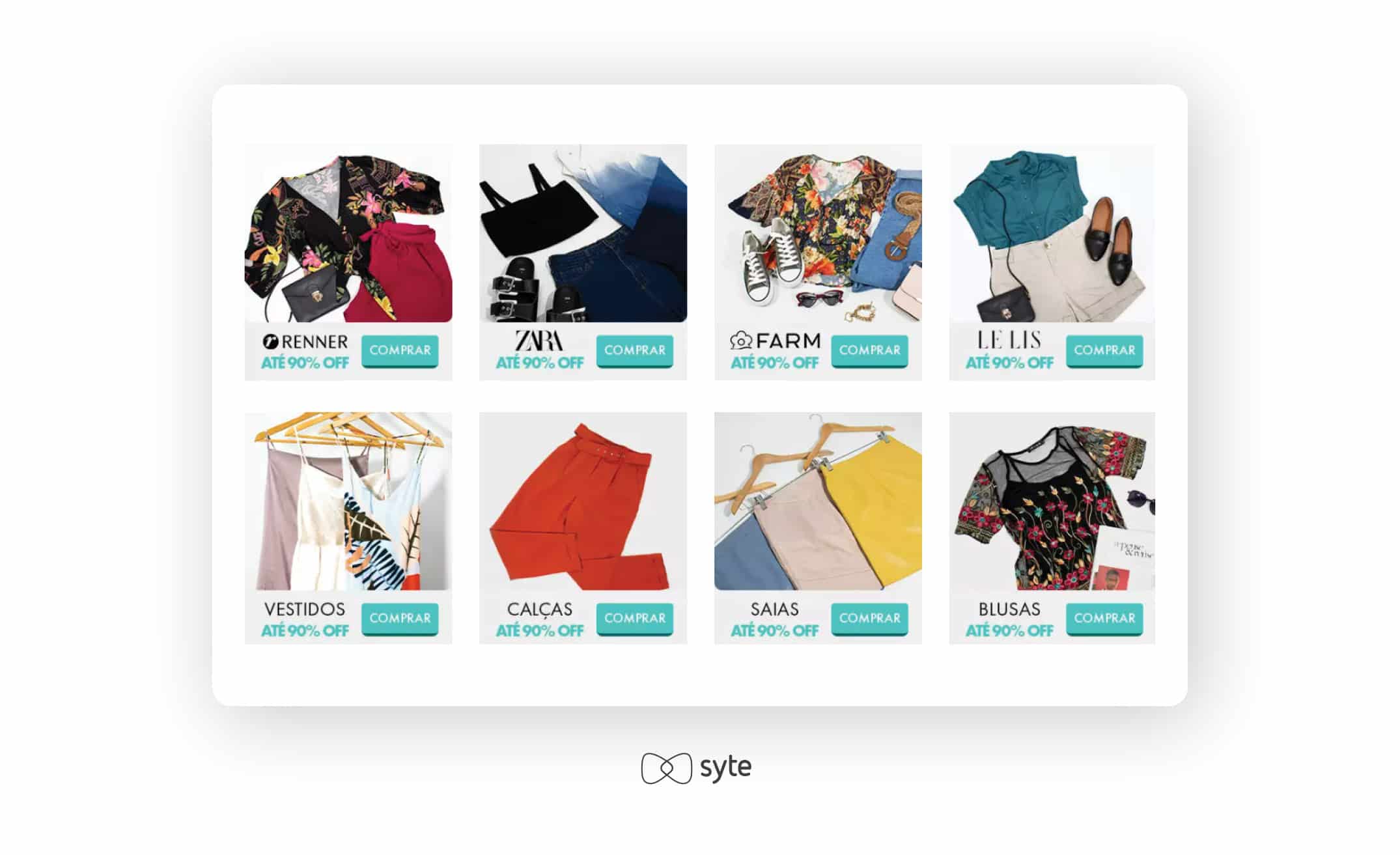Sustainability is a top priority for online shoppers. These 4 brands are setting the bar for environmentally conscious retail.
In 2023, offering sustainable choices to consumers is on most retailers’ minds. It’s a priority for them, because it’s a priority for many of their shoppers, especially the younger set. Three-quarters of Gen Z consumers say that sustainability is more important to them than brand names, for example. Style and trendiness aren’t the only qualities that consumers are looking for these days. Shoppers want to know that their purchases are environmentally conscious, don’t contribute to greenhouse gas emissions, and are cruelty-free.
Using a visual product discovery platform like Syte can help streamline operations, reduce waste, and help your brand be more sustainable:
- Avoid overstocks by gleaning insights from AI-based tag analytics, which can tell you which product attributes are trending up or down. Likewise, brands can minimize returns (and reduce carbon emissions) with accurate product tags, which make it easier for shoppers to get to what they want – even if they don’t have the words for it.
- Merchandising rules and ranking strategies can be used to more effectively promote certain products so you can lower your warehousing impact. This can help you eliminate unnecessary storage and textile waste.
- Brands and retailers can use visual AI-powered carousels and smart mirrors to recommend similar items, helping improve product discovery and move inventory more efficiently.
- Recommendation engines identify when a shopper is looking at sustainable products, and can provide similar options. For example, home decor shoppers who are looking to avoid synthetic materials will appreciate the option to narrow down the results to furnishings made from bamboo, reclaimed wood, stone, or aluminum.

Decathlon Belgium
The creativity in marketing award goes to Syte customer Decathlon Belgium, a sporting goods and athletic wear giant, which debuted a memorable campaign to garner attention for their sustainability efforts. For the month of October 2022, Decathlon changed its name in three Belgian cities and on its social media accounts to “Nolhtaced,” its name backwards. Why did they do this? To promote their “reverse-shopping” initiative, where customers can sell their used products back to the store, which would repair (if necessary) and resell them under warranty. The program offers payment to the original sellers in the form of Decathlon purchase vouchers. It even includes products that weren’t originally purchased from Decathlon.
Rocksbox
Rocksbox, a brand of Signet Jewelers, is a jewelry rental subscription platform that has sustainability values written into its structure. The company is a participant in the circular economy, sending customers the latest trending jewelry while also delivering sustainability benefits, as customers have an option to purchase each month’s set or return it at any time for a new delivery. Jewelry fans can direct their preferences by adding items to a wishlist (powered by Syte!). Each month’s set will arrive with at least one piece from the wishlist, so customers can try the styles they’ve personally curated, while being exposed to new trends. Whatever isn’t sold is added back to the queue and sent to different customers (after being sanitized.) It’s a great way to add sparkle for next-generation jewelry customers who care about reducing carbon emissions and unnecessary purchases.

City Furniture
Home decor shoppers have made their preferences clear – they’re buying green. That means environmentally friendly home furnishings, textiles, and floor covering. The sustainable home decor market, valued at $331 billion in 2021, is predicted to surge, with a projection of $556.3 billion global value by 2031. City Furniture is a pioneer in environmentally friendly practices. They’ve been recycling packaging and paper waste since 1980! They also decrease dependence on the world’s forests by working with suppliers to reduce wood wastes, as well as integrate recycled wood materials and wood alternatives into their products to reduce reliance on virgin woods. Shoppers looking for these sustainable items can easily find them on City Furniture’s website, which is driven by Syte’s visual AI technology. They can continue their purchasing journey with the site’s Shop Similar feature, directing them towards additional sustainable items.
Repassa
Resale marketplaces have surged in popularity over the past three years. It fills a gap for retailers who are dealing with global supply chain issues and for consumers who are searching for sustainable shopping options. Repassa, a brand of Lojas Renner, is Brazil’s first and largest online second-hand store, selling clothes from major brands such as Zara and Renner. They also accept clothes from individual sellers, who are happy to let Repassa handle the sales, fulfillment, and delivery. Charity-conscious sellers can even choose to donate part of the purchase price of the clothes to an NGO of their choice. Repassa has over 600,000 pieces in stock, but with Syte’s visual AI-powered search technology, shoppers can easily find what they’re looking for, even if they don’t know how to describe it.

Make it Green
Today’s brands and retailers that prioritize sustainability will achieve a higher level of trust from their customers while contributing towards reducing waste and greenhouse gas emissions worldwide.